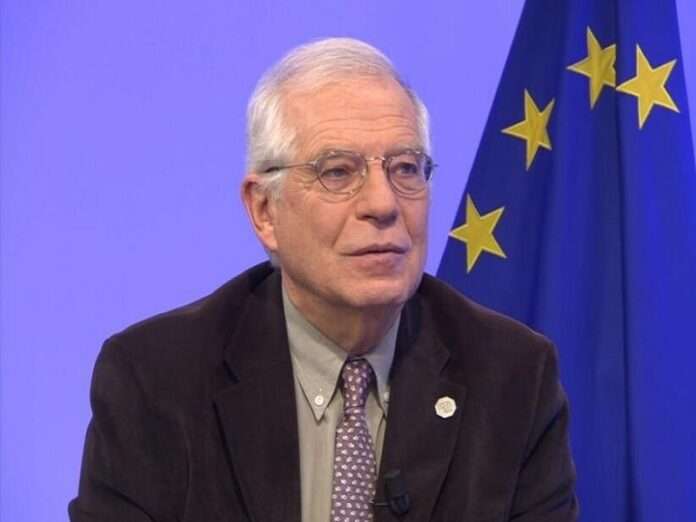Ukraine became jealous like never before after NATO members helped shoot down Iranian missiles en route to Israel earlier this month yet won’t lift a finger to help Ukraine shoot down Russian ones. British Foreign Secretary David Cameron said that “the difficulty with what you suggest (about the UK shooting down Russian missiles) is if you want to avoid an escalation in terms of a wider European war, I think the one thing you do need to avoid is NATO troops directly engaging Russian troops.”
Pentagon spokesman John Kirby responded to a similar question by saying “Look: different conflicts, different airspace, different threat picture. And [President Joe Biden] has been clear from the beginning [of the Ukraine hostilities] that the US is not going to be involved in that conflict in a combat role.” Zelensky’s Chief of Staff Andrey Yermak didn’t buy their explanations, however, and demanded that the West start shooting down Russian missiles just like they shot down Iranian ones.
NATO Secretary General Jens Stoltenberg tried allaying Ukraine’s jealousy by declaring that “if allies face a choice between meeting NATO capability targets and providing more aid to Ukraine, my message is clear: send more to Ukraine.” Even though he’s telling members to prioritize Ukraine’s interests over their own national ones, Kiev isn’t expected to calm down since it still knows that NATO won’t come to its rescue in this respect like the bloc just did for Israel.
That’s where EU foreign policy chief Josep Borrell’s nifty excuse comes in. As he explained, “Iran’s attacks flew over air bases of the armies of France, the US, the UK and Jordan. They have gone over their bases, which then acted in self-defense. There are no air bases of the UK, or the US, much less Jordan of course, on Ukrainian territory or in the territory Russian missiles fly over. Therefore, the same answer cannot be given because the circumstances are not the same.”
This is credible enough of a reason to justify a conventional NATO intervention in defense of Israel without giving Ukraine grounds to claim that there are double standards at play. The only way that Kiev could try flipping the tables is in the far-fetched event that it officially admits the presence of NATO troops on its territory, which Polish Foreign Minister Radek Sikorski described as an “open secret” last month, and pinpoints their bases to prove that the bloc does nothing as Russian missiles fly overhead.
That is extremely unlikely to happen, however, since it would represent a major security risk. Ukrainian officials might still hint that this is the case and perhaps leak vague information about it into their national media and/or to international media via their “agents of influence”, but they’re almost certainly not going to cross the red line of disclosing specific details that could put those troops at risk. Borrell, for all his professional faults, knows this and thus crafted his nifty excuse that inspired this analysis.
Giving credit where it’s due, that was a wise move since his explanation is consistent enough to dispel Ukraine’s complaints about NATO’s double standards and consequent perception of being less important to the bloc than Israel is, both of which are true but can now be more plausibly denied. Ukraine should accept that NATO isn’t going to treat it and Israel as equals, with the only consolation being if some members send it more Patriot systems, but that’s not the same as them shooting down Russian missiles.








